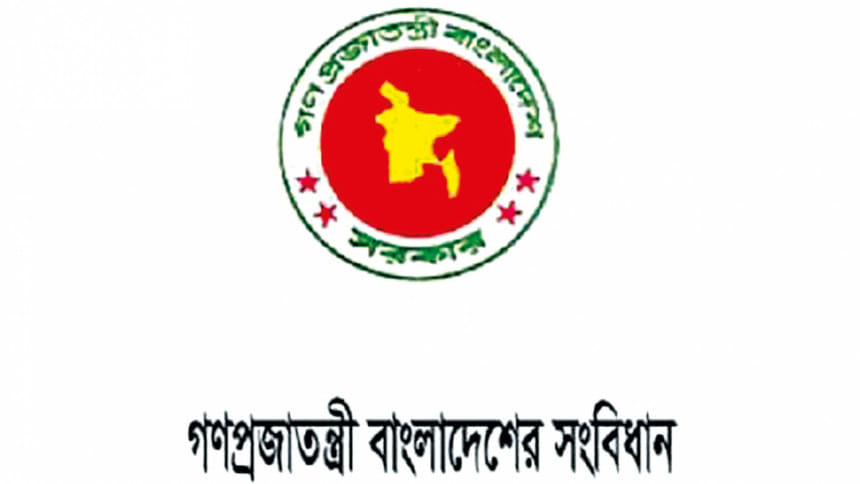Absence of the office of ombudsman: 48 years and counting

Ombudsman is a nonpartisan independent official outside the bureaucracy, who is vested with the power to detect administrative lapses and faults, investigate, recommend corrective measures, issue reports, among others. The office of Ombudsman oversees and inspects whether the administrative officials are exercising their jurisdictional powers legally or not. It creates procedures for redressing individual grievances to safeguard individual rights. But, in comparison with the umpteen institutionalisation of this office in the western developed countries, the office of Ombudsman is stillborn in Bangladesh, even after forty years post-adoption of the Constitution.
Article 77 of the Constitution and the Ombudsman Act, 1980 respectively stipulate the legitimate existence and detailed provisions regarding the functioning of this office. Probably since the establishment of the office was not made mandatory, rather was left to the sagacity and discretion of the parliament, the vacuum of an ombudsman was not filled by the passage of time.
It is needless to mention that, if the administrative activities remain derelict and of unfettered type, tyranny becomes the norm. As Bangladesh emerged from the British colonial rule afterward through the neo-colonialism of the then Pakistan, it inherited an asymmetric political order where administration has had dominance over maximum institutions. From Bangladesh's perspective, the method of repressing administrative malpractices is casual in nature and quite abortive. The Annual Confidential Report (ACR) is largely subjective and is not of much use. To minimise the maladministration, inefficiency, arrogance and abuse of power, the appointment of ombudsman has become a crying need. Formal investigations are cumbersome, time-consuming and protracted, contrariwise the investigation of an ombudsman is informal. To administer the operations of Government officials, executives and agencies, the installation of ombudsman is highly preferred.
The prerequisite of good governance is uprooting corruption. But this malpractice is so deeply rooted in Bangladesh that it has affected every sector, including the administrative apparatus. Simply put, our administration has been grappled by this gluttonous monster. Though the Anti-Corruption Commission has been established to oversee these malpractices, they hardly deliver fruitful remedies. To shut off the corruptive, permeating different sectors, including the upper echelon of the country malpractices, the office of ombudsman should be put forwarded.
Though the Ombudsman Act, 1980 is an exhaustive and distinctive Act, it has multiple shortcomings. Only the head of the State has the discretionary power to appoint the ombudsman considering the recommendations of parliament. Naturally, the ruling party will appoint the ombudsman as to their conveniences. For proper functioning, it should be amended to ensure that an ombudsman acceptable for all is put in place through parliamentary consensus. Furthermore, the Ombudsman Act, 1980 excludes the allegations on certain public functionaries such as MPs, ministers, judges etc. The Act also does not include "acts of corruption" and "illegal acquisition of property". In a country like Bangladesh, where corruption and impropriety has crossed all the endurable limits, such a limitation can render the office of ombudsman teethless.
Since the population of Bangladesh is huge and rapidly expanding, one parliamentary ombudsman is rationally not sufficient. Bangladesh needs to appoint non-parliamentary ombudsmen i.e. equal opportunities ombudsman, children ombudsman, the press ombudsman, ombudsman against ethnic division, consumer ombudsman and so on. Denmark, Sweden, Finland have institutionalised these sorts of non-parliamentary ombudsmen. So far, parliamentary ombudsman has been appointed in 46 countries along with the neighbouring country India, Pakistan. Bangladesh must appoint the legislative and executive ombudsman both to confront the challenges.
Bangladesh requires the appointment of such ombudsmen who can scrutinise the complaints made against every public official including cabinet ministers, MPs, central bureaucracy, local representatives, military personnel, judicial bodies etc. and who can guarantee to take lawful, non-discriminatory, fair actions without extraneous considerations. Corruption, nepotism, biases in the public administration will be rooted out via them. The installation of ombudsman will affirm stronger and more disciplined democracy and mostly rule of law will prevail in Bangladesh.
The writer is undergraduate student, North South University.

 For all latest news, follow The Daily Star's Google News channel.
For all latest news, follow The Daily Star's Google News channel. 



Comments